Wilkins, Grant Park offer a mixed night of lighter fare
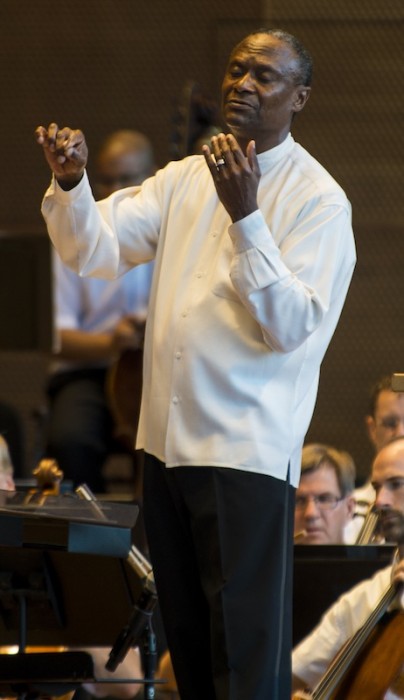
You want weighty German repertoire, come to the Harris Theater this weekend when the Grant Park Orchestra plays Bruckner and Weber.
Wednesday night at the Pritzker Pavilion was an evening for lighter fare with Thomas Wilkins leading a pair of rarely heard symphonies, lightish in style with more charm than profundity, to a crowd estimated at 11,000 by festival officials.
Jerry Goldsmith’s Fireworks: A Celebration of Los Angeles set the populist tone for the evening. Written for a concert of the composer’s music at the Hollywood Bowl, it’s an energetic curtain-raiser, albeit with a superficial slickness suggestive of the TV and film music genre for which Goldsmith is best known. Wilkins led the orchestra in a lively performance.
The Grant Park Music Festival continues to showcase American music with William Grant Still’s Symphony No. 3. The work’s title, “Sunday Symphony,” reflects the composer’s religious commitment, amplified further in the four movements: “The Awakening,” “Prayers,” “Relaxation,” and “Day’s End and A New Beginning.”
Even with that there is no palpable religious component in the music. As with his better-known “Afro-American Symphony” (No. 1) Still’s music is tuneful, piquant and attractively scored, as with the bluesy theme of the English horn in the second movement and the ensuing perky lilt to the scherzo.
Ultimately, Still’s symphony is a rather slender and lightweight affair, with an emphatic, clunky finale. Wilkins led an amiable performance that brought out its lyric charm.
It took Antonin Dvořák seven attempts before he found a way to mould his musical sensibility to symphonic form, attaining structural rigor that maintains dramatic cut and showcases his melodic gift and Bohemian color without losing the thread.
The Czech composer’s Symphony No. 6 has inspired moments yet overall remains one of Dvořák’s least successful works in the genre. The opening theme is a winner, but Dvořák doesn’t develop it in a concise or interesting way, the first movement lumbering on for a repetitive fifteen minutes. At over three-quarters of an hour, the Sixth feels much longer than it needs to be. In the middle movements, especially, one feels Dvořák trying to find his own voice yet failing to get disentangled from the beard of Brahms.
Wilkins, music director of the Omaha Symphony and principal conductor of the Hollywood Bowl Orchestra, directed a solid and efficient performance, nicely bringing out the insistent Furiant rhythms of the third movement.
Yet often one wanted greater grip and incisiveness from the podium in a work that needs all the help it can get. Attacks were too often slack and blunt edged, with wind tuning variable. Wilkins’ direction felt metrical in the Adagio, the music meandering on with little punch to the contrasting middle section. Likewise the finale felt more garrulous than exciting, though the Grant Park strings brought a welcome burst of bravura in their virtuosic fugue near the coda.
Christoph König conducts the Grant Park Orchestra in Bruckner’s Symphony No. 6 and the Overture to von Weber’s Die Freischutz 6:30 p.m. Friday and 7:30 p.m. Saturday at the Harris Theater. gpmf.org.
Posted in Performances


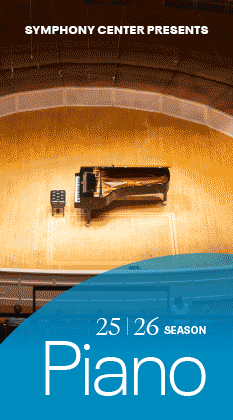
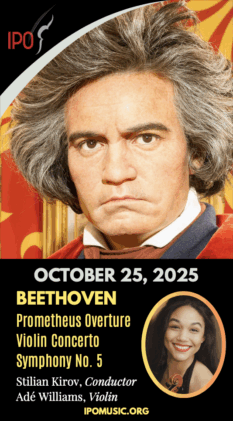
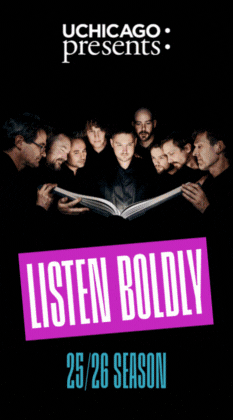
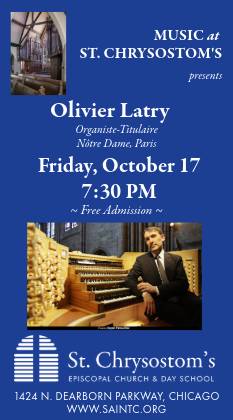
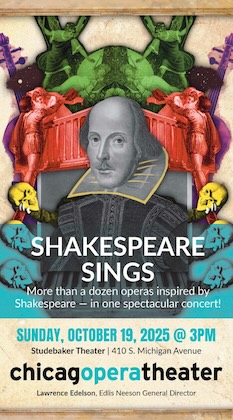

Posted Aug 02, 2015 at 2:55 am by Roland Buck
The Grant Park symphony deserves a lot of credit for including works of American composers that are musically accessible to ordinary concert audiences, which are unfortunately ignored by the Chicago Symphony. The failure of the Chicago Symphony to include such works, especially works by Aaron Copland, and loading its programming down excessively with weighty German repertoire leads to a lack of variety in its programming.